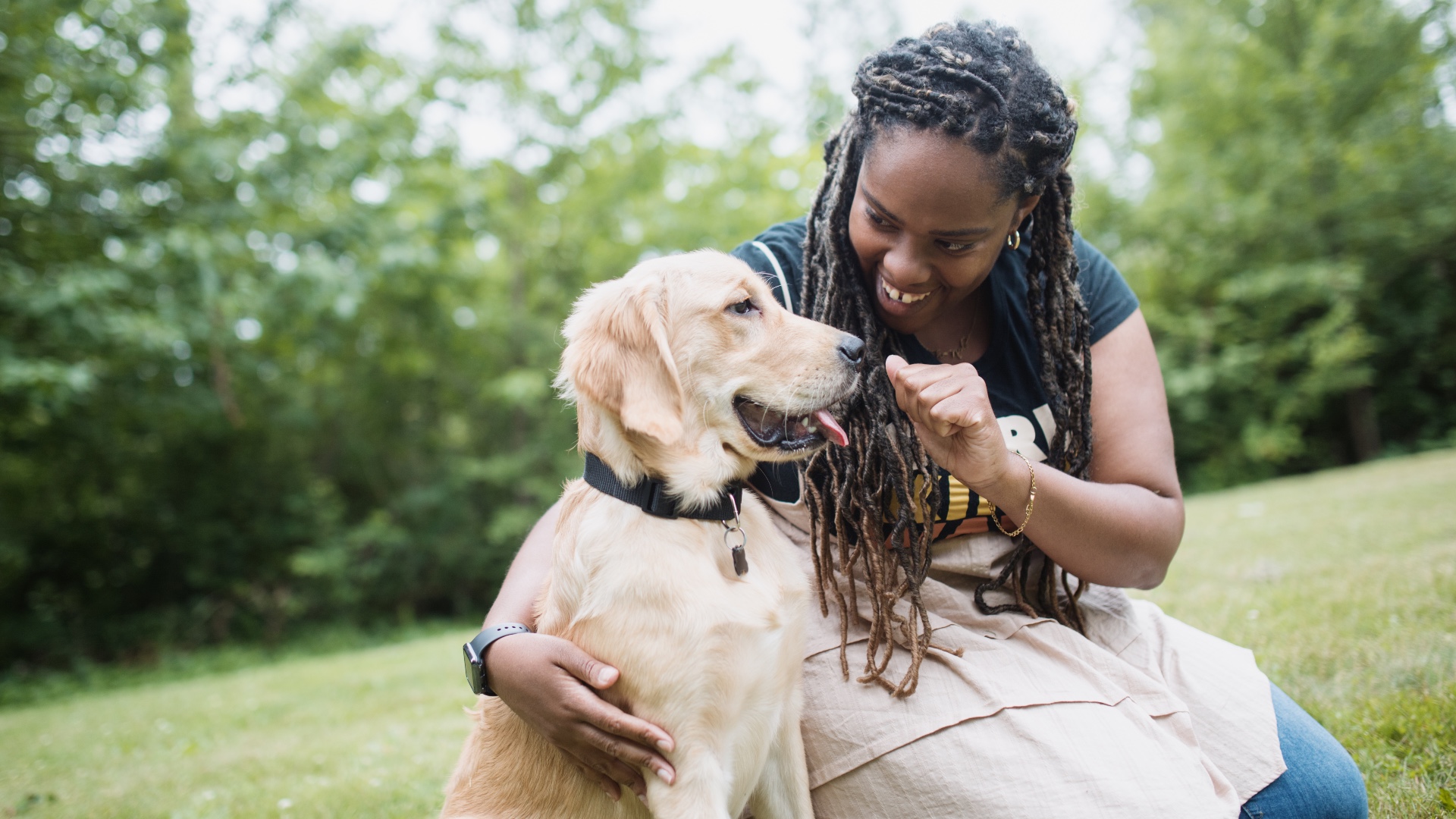
Whether you're trying to avoid the most common loose leash walking mistakes or you're wondering why your dog's recall isn't reliable no matter what you do, there's no denying that training can feel like a challenge some days.
If you've been arming yourself with the very best dog treats and doing everything by the book, but you're still not seeing the positive changes in your dog's behavior that you're wanting to see, your training sessions might be missing one secret ingredient.
According to expert trainer Carolyn, who is also the founder of Good Dog Training, it's super easy to fall into the trap of becoming the wrong kind of teacher when we're training our dogs.
"Who do you want to work with?" Carolyn asks. "A supportive, kind teacher, or a militaristic, punishment-focused teacher?"
While none of us mean to adopt the latter approach, it's so easy to become frustrated with our dogs behavior, especially if they struggle with separation anxiety, are reactive, or tend towards being destructive.
This frustration can cause us to slip into unhelpful behaviors ourselves without meaning to.
However, Carolyn says that both your training sessions, and your relationship with your dog, will improve dramatically if you're aware of these two different approaches.
A supportive and kind teacher is someone who:
- Walks you through what to do
- Celebrates when you get it right
- Helps you fix mistakes without making you feel stupid
- Offers support and guidance
- Always has your back if you're stressed, or confused, or scared
In contrast, a militaristic and punishment-focused teacher is someone who:
- Waits for you to make a mistake so they can punish you
- Expects immediate and perfect obedience 100% of the time
- Doesn't offer support or guidance
"We all want to work with the person who is kind and supportive, who understands we're going to make mistakes," Carolyn says.
"If you've ever worked with that person, you know how much easier it is to learn, how excited you are, how great your relationship is with that person. That's what your dog wants too."
Carolyn says that when you're training your dog, you want to be the person that YOU would want to work with.
"Teach your dog the way you would want someone to teach you."
Implementing Carolyn's advice when interacting with your dog has the potential to yield huge results when it comes to your pup being able to master new skills and behaviors.
However, if you feel that you and your canine companion would benefit from some 1:1 support, we recommend reaching out to a professional trainer.
Just be sure to read our guide to how to spot dog trainer red flags first to ensure you're working with someone who uses positive training methods and has the appropriate qualifications.







